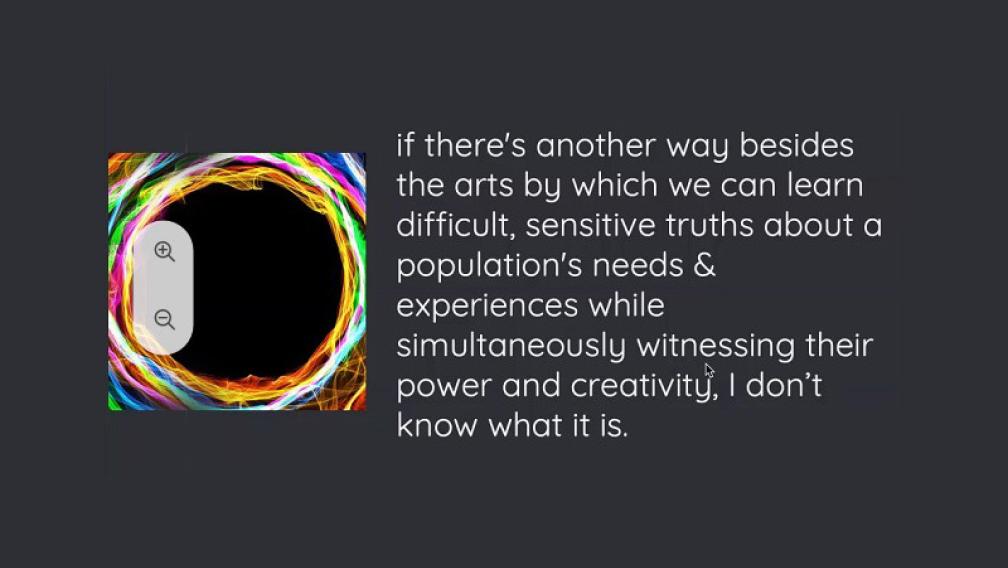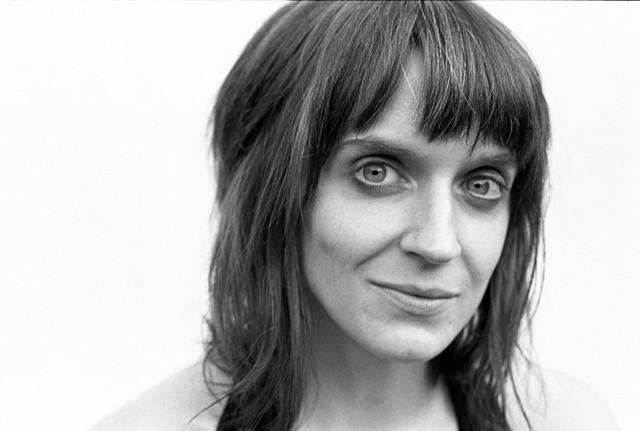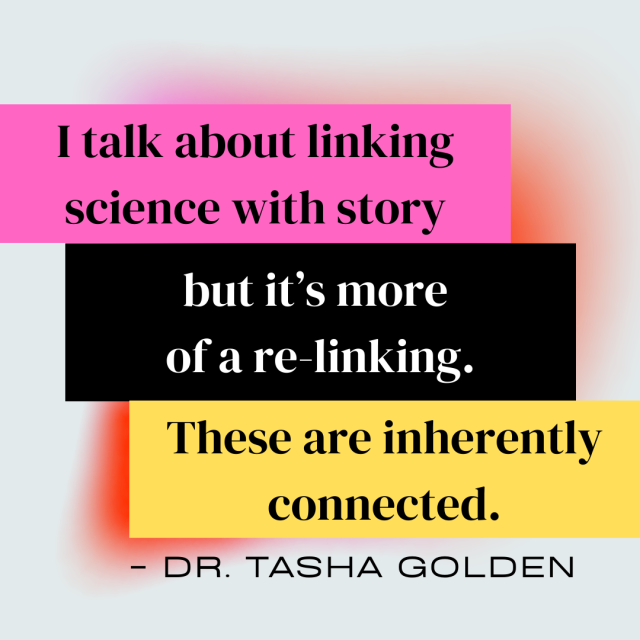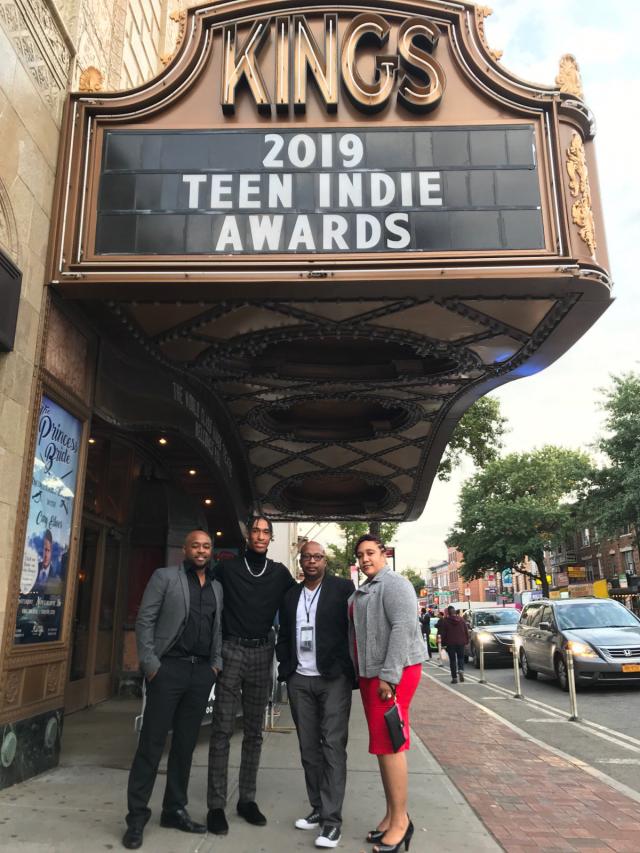“It's impossible to overstate the importance of technology in offering new ways of sharing, passing, and seizing the mic,” writes Dr. Tasha Golden, Senior Arts in Health Research Scientist at the International Arts + Mind Lab in the Johns Hopkins Brain Science Institute; founder of Project Uncaged, an arts-based, trauma-informed program that amplifies the stories of young women in tough situations; and keynote speaker for Trinity’s forthcoming virtual event on December 3 at 6pm EST, in her email on a recent rainy November afternoon. “In work with incarcerated populations, technology is a primary way in which their words, ideas, and influence reach beyond the walls of the jail or prison. And during a pandemic, we’re all much more reliant on technology as a way to be where we can't physically show up. We have to be increasingly, intentionally imaginative—and audacious—about what we want to do with technology, and how it plays a role.”
Dr. Tasha Golden is a Senior Arts in Health Research Scientist at the International Arts + Mind Lab in the Brain Science Institute at Johns Hopkins.
Dr. Golden’s work centers on health equity and using the arts to explore broader truths that question norms and power hierarchies. As a published poet and singer-songwriter for the critically acclaimed band Ellery, she quotes James Baldwin as she explains the intersection of the arts and sciences: “The artist cannot and must not take anything for granted, but must drive to the heart of every answer and expose the question the answer hides.” This glimpse into Baldwin’s take on the creative process “applies just as much to research of all kinds—the willingness to expose questions,” says Dr. Golden. “I talk about linking science with story, but it’s more of a re-linking. These are inherently connected. The failure to recognize this results in continued failures to examine power and assumptions. We wind up with what [Nigerian writer Chimamanda] Adichie calls ‘the danger of a single story.’” If we only hear one story about someone, we risk a critical misunderstanding of who they truly are. Instead, our lives are made up of overlapping stories, and that drives us toward a greater understanding of ourselves and our cultures.
Health equity, as with many other areas of study that are actively pursuing equity for marginalized populations, requires the inclusion of diverse voices and knowledge sets, as well as ongoing innovation in research methods. At the International Arts + Mind Lab, the emerging field of neuroaesthetics takes center-stage as a cross-disciplinary approach of studying the arts’ impact on the human brain and behavior—a prime example of how research methods are evolving. Dr. Golden explains her approach in this way: “Much of what I do as a facilitator, leader, and human is determined by these questions: ‘Am I walking into this jail primarily to teach something or to learn? Do I perceive these individuals primarily as needing something from me or as powerful teachers and leaders—not someday, but right now?’ My job, as I see it, has never been to just facilitate a trauma-informed, arts-based intervention inside the walls of a jail, but to figure out how to get participants’ words where they want them to go, to help them initiate the changes they want to generate.”
At Trinity, a long-standing partnership with a neighboring school, Leadership and Public Service High School, has led to several arts-based collaborations that have created channels for showcasing students’ values and perspectives. “Art continues to be instrumental in how Trinity has engaged with Leadership High School students,” says Jennifer Chinn, Senior Program Manager for Youth Programs at Trinity Commons. “Art teacher Anne Schellhorn encourages her students to express themselves and their ideas through public art projects that explore identity, race, and current events. Trinity is honored to be able to support these insightful creators further with programming, mentoring, and space.” While projects such as Justice for Sergio and Keep It Reel have centered youth voices and won awards, considering these collections to be data that demonstrate larger cultural truths is something we look forward to learning more about in Dr. Golden’s talk.
A Keep It Reel student filmmaker, Jamantaye Moss, poses with his family at the All American High School Film Festival, where his film Luz de Vela was nominated for an award.
“Our well-being is affected not only by individual behaviors or genetics, but by our relationships, by our communities, institutions and access to resources, by the policies that affect our lives and opportunities, and by the sociocultural contexts that shape all of the above,” says Dr. Golden, referencing a social-ecological model. The connection of the arts to the study of behaviors, communities, policies, society, and culture, and understanding what well-being and thriving might mean in the future, will be the subjects of her talk on December 3 at 6pm EST.
About Dr. Tasha Golden: As a public health researcher and innovator, Dr. Golden studies the impacts of arts, culture, environment, and discourses on health, equity, research, and clinical practice. Her visionary work is bolstered by her career as an artist and entrepreneur. She is the founder of Project Uncaged, a trauma-informed, arts-based health intervention for incarcerated teen women; founder/CEO of Idiom Insights; a published poet; and singer-songwriter for the critically acclaimed band Ellery. Learn more at TashaGolden.com.
About Lisa Jaycox: Lisa is the Director of Content Strategy for Trinity Church Wall Street. She leads the content and marketing team and develops strategies that leverage insights to tell Trinity's story and the stories of our community in engaging ways.



